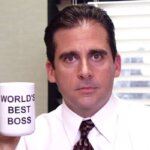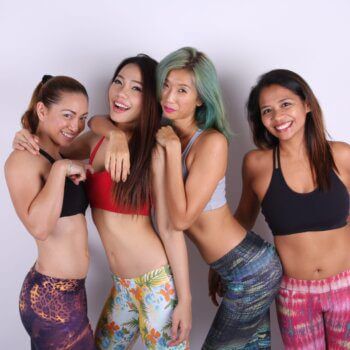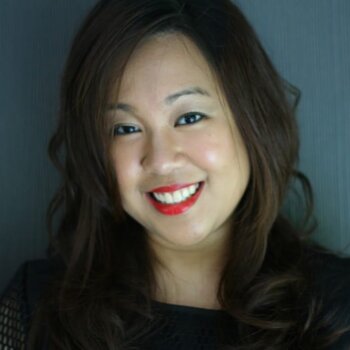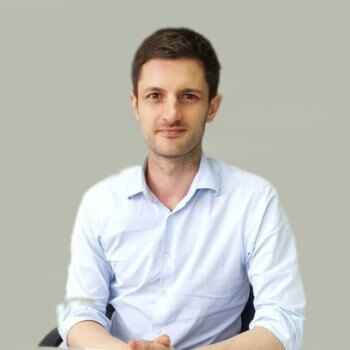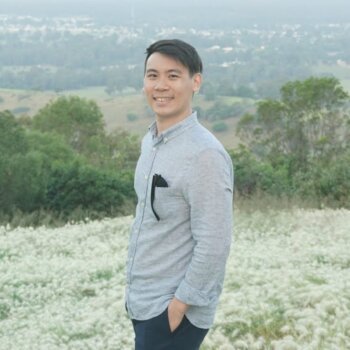Aromababy was launched in 1994 as the first brand of its kind to combine the use of natural and organic ingredients with neonatal research. The launch of Aromababy created a new category in the Australian retail space. Currently sold through leading stores around the world including Myer and Thomas Dux, Aromababy is also used in select hospitals and resorts and is exported internationally as a leading brand. Aromababy has seen a lot of traction in Asia with its recent expansion into the markets. Its founder, Catherine Cervasio, joins The Asian Entrepreneur today to share with us her experiences of developing a retail brand from scratch and her attempts to tackle the Asian markets.
How did you come up with the idea of Aromababy?
Aromababy was developed after an unsuccessful search globally, for natural baby skincare to use on my own newborn, 22 years ago. With a background in product development, beauty writing and love of natural skincare, together with a keen interest in health and wellness, I set about formulating a small range of skincare for babies which used neonatal research as a guide. Aromababy was developed over the next 12 months and originally launched in Australia in both hospitals and pharmacies.
Could you walk us through the process of starting up Aromababy?
Having had some experience in working with cosmetic chemists, this is where I began. It was interesting to find, however, twenty years ago there was little understanding of using natural ingredients and essential oils as raw materials and there were no existing formulations. I spent some time looking at various research which showed a correlation between the use of certain ingredients and skin irritation for example sulphates, mineral oil, propylene glycol and artificial fragrance. With one in four babies suffering from eczema or some form of atopic skin condition within their first year, my aim was to formulate an alternative range of skincare products and offer a choice in the type of personal care available to both health professionals and parents. In Australia, some hospitals ‘market’ baby products supplied by multinationals and these products are not always suitable for every baby. If a baby has an allergy or sensitivity to added colour, fragrance, strong surfactants (these are the ingredients such as sulphates which cause bubbles) or preservatives – for example in the paraben group – and the products supplied at a hospital level contained these types of ingredients, parents were left with no options or were forced to resort to cortisone and steroid creams to manage skin irritations which often followed. The research I accessed suggested water only be used for newborns so this is what we recommend. If parents then wish to use a product to bathe or manage dry skin, we offer a range of gentle, natural products which do not contain some of the ingredients thought to be linked to eczema. It then becomes the parents’ choice if they use natural, synthetic or simply water on their baby’s skin.
Did you encounter any particular difficulties during startup?
To bring Aromababy to market was no easy task. Baby skincare available at that time was only sold in supermarkets or pharmacies and the formulations were all very similar. To utilize natural and organic ingredients meant testing for shelf life, testing on babies of family and friends and then pitching a brand to retailers which was more than double that of what they currently sold. As a result, education and the provision of information around the importance of natural baby care became my passion. I went back to study a Diploma in Aromatherapy and then as an Infant Massage Instructor. I held workshops, training for midwives and pharmacy groups and spoke to as many new mothers as possible to help equip them with enough information to make a more informed choice in the products they chose both for themselves and also for their children.
How have you been developing AromaBaby?
Since launching over twenty years ago Aromababy has expanded to include unscented (no essential oils) product and more size options. Once parents understand the benefits, they prefer to purchase in 250ml sizes however to begin with – or as a gift, often the 125ml size will be chosen which is a perfect introductory size. We also have products in travel size as many of our customers are families that travel often – particularly between parts of Asia and Australia.
We have continued to provide workshops for example in Dubai, Hong Kong and Singapore, most recently in China, where our products are newly available. My approach is always what is best for the baby, not how many units can I sell. Every parent has a different need. Every parents wishes to do the best for their baby. My role is to help educate around the topic of health and wellness in personal care and massage, to help empower new mothers in particular to feel confident in the way they care for their babies.
We launched two separate brands several years ago, to suit different needs and price points in the market. Our area of expertise is in natural personal care for mother and child so it made sense to extend our offering.
What kind of feedback did you get for Aromababy so far?
Soon after the first Aromababy products were launched we began to receive extremely positive feedback from both health professionals and parents, relating to the natural healing qualities of our skincare – particularly where eczema and sensitive skin were a concern. One product in particular, our Barrier Balm, has developed a ‘cult like’ following, used by celebrities as a lip balm as well as for baby skin rashes, diaper care and for eczema. Customers also love this product for insect bites, sunburn and much more. With a high percentage of active ingredients that actually help to soothe the skin, our Barrier Balm remains in a class all its own primarily due to the efficacy. We also have general positive feedback for the entire range – some customers use the Pure Hair Cleanse for the entire family, some use our Bath Gel in the shower and even our Pure Baby dud (Moisture Cream and Baby Wash – both unscented) when they have dermatitis or dry skin themselves.
Do you face a lot of competition in this industry?
When we launched we were the only brand of natural baby care that existed for many years. Some brands launched and failed, none were spearheaded by someone who had the knowledge and/or passion to understand the market well – it was all about ‘business’. For me it has always been a much more personal journey. My brand was an extension of my heart it was developed as the first in the world because I could not find anything similar to use on my own baby. Any brand that has launched since is just another brand in the market, there are multiple brands to choose from now all offering similar products and with no real point of difference. In Australia the market is over saturated with ‘natural’ baby brands – so much so that there is little opportunity for new brands to success due to the low annual birth rate of only 250,000 babies. Compare this to China’s 16 million and you can see why so many brands are scrambling to export – not only to China but elsewhere in the world.
Healthy competition is good for the sector – it increases awareness around natural products for babies and the role they play. Our point of difference is in the formulations – the active ingredients deliver a result, the efficacy is what sets us apart from other brands. This coupled with my twenty years of market knowledge, expertise and pure passion for what I do, sets an advantage and clear boundary between ‘supermarket type’ products and newer, specialty products developed mostly for the gift market.
Our strategy against competition is to continue to both innovate and educate. We are in the process of developing more products, updating formulations and extending our other brands into Asia. I am a published freelance writer on mother and baby health, beauty and business which helps to build my profile as an expert in our industry. It would be likely that we will partner with a larger organization in the future to help grow our business to the next level.
Have you developed any industry insights that you could share?
The industry of baby skincare and the baby category overall, have both grown enormously over the past two decades. Driven by, for example in Australia – mothers having their babies at a later age which translates to more disposable income, more time for researching skincare options and a ‘best’ for my baby attitude. Elsewhere we look at China, with many families having only one child, the baby has 6 or more adults to shower it with love, gifts, the best personal care. Parents only wish to use the best products. We offer a well-established, premium brand which offers not only value for money (a little goes a long way due to the concentrated formulations) but efficacy, a luxury feel and a strong history in the health professional environment ensuring parents have absolute peace of mind. This is what I believe all parents are searching for – peace of mind, knowledge that they are using what they believe to be the best products possible for their baby.
In China you cannot sell baby skincare in retail stores without them being registered. We are the only Australian skincare company with baby products registered to sell offline. Whilst there is a huge focus on ecommerce and free trade zones in China right now, this is a limited way of selling, still fraught with regulatory restrictions and unstable – policies could change at any time and effect suppliers using these channels only. To sell in retails stores provides parents with an emotional connection – they can touch, smell, read ingredients and be sure they are purchasing an authentic, genuine Australian made product. This is an important factor in baby personal care brand success, in my opinion.
What is the future of the industry?
I see the industry as continuing to grow and continuing to be more regulated in the future. In Australia we have little if any guidelines around the use of words ‘natural’ and ‘organic’ on baby products. In fact some brands are using the word ‘organic’ prominently on labeling where the formulation may contain less than .5% natural or organic ingredients (this usually relates to the essential oil component – used at less than half of one percent in a baby product and meaning the remainder of the product, 99.5%, is non organic/natural). This is designed to mislead and confuse consumers. Retail buyers, importers and consumers together all need to be aware of brands which market in this way and be able to identify genuine, natural brands run by established business who have the end user’s interest at their core. We are not talking about a gift product in a department store, this category is all about newborns and generally their mothers, who can be in a vulnerable position when not understanding fully the quality of imported products.
Was there anything that disappointed you initially?
Initially we had a very good experience after launching Aromababy. Some years later a similar brand was launched (in that it used some degree of ‘natural’ ingredients). That brand then altered its packaging to look more like Aromababy and began to use some of the marketing ideas and key phrases. We were forced to take legal action however ended up moving on from this to leave the negative energy behind and concentrate on what we do well. That brand ended up in mass market (supermarket/discount stores) which is very different to where Aromababy sits in the sector, so things worked our ‘organically’ we could say. The feedback between consumers using the two brands is very different – where parents have no relief, for example with eczema, using the other brand, they come to us. We don’t offer miracles however we do offer unbiased information and many years of experience. Customers can then make up their own minds on what is best for their baby.
What do you think about being an entrepreneur in Asia?
My experience of being an entrepreneur in Asia is a positive one. My very first business trip in my twenties was to Hong Kong. My employer fell down a ramp at a 5 star hotel and broke her knee. She was hospitalized on our second day in Hong Kong and remained in hospital for over a month so I was expected to take over and conduct product development appointments on her behalf. This was a great learning experience and I really began to grow a fondness of the Asian people and their culture.
Nothing has changed over my two decades in the industry. My work takes me to Singapore, Taiwan, Korea and more recently China. I always try to learn a few words of the local language and I find the Asian markets are both welcoming and have wonderful opportunity for established brands.
My experience has been that Asia as a region values entrepreneurship, women in business and our personal story – they want to know how did you start, what is your story. It is about learning more and building relationships than purely doing a business deal. I love this about working in Asia.
What is your opinion on Asian entrepreneurship vs Western entrepreneurship?
Western entrepreneurship tends to be more about ‘what is in this for me’ whereas Asian you could say, is focused on how can we work together, how can we collaborate. As a lover of collaboration and being of service, this works really well for me and our business ethos.
What is your definition of success?
For me ‘success’ is around designing the life you want whilst doing the things you love. Being able to impact others by offering a quality product and information service, all of this around raising my two beautiful sons, is what success is all about for me. My business journey has been shared with many over the years, I am a regular presenter at events, often aimed at women in business. My hope is that my story can in some small way, inspire and educate others and my products make a difference where a baby is suffering from a skin condition.
Why did you decide to become an entrepreneur?
I’m not really certain I ‘decided’ to be an entrepreneur. I was retrenched from a product development role just before our long festive holiday season in Australia. The surprise news that I was also expecting our first baby around that same time, left me with little prospects of full time employment. This, together with the lack of natural baby care, spurred me on to become an entrepreneur. So I guess you could say it was accidental.
In your opinion, what are the keys to entrepreneurial success?
Being an entrepreneur requires that you think on your feet. You are always on the go and probably are passionate about many things – passion is part of who you are. Lots of things excite you – you are flexible and are always looking at different ways of doing things. Entrepreneurs at start up often work alone so it can be rather isolating and you need to be both resilient and persistent. Balance is important too – have a good support network and share your journey with people you can trust, I believe this is vital. And be sure to take time out just to breathe …
Any parting words of wisdom for entrepreneurs out there from your personal experience?
As an entrepreneur you really need to love what you do. If you don’t feel passionate about what you’re doing, it’s possibly time to move on. Celebrate the small wins, find your tribe (a great support network) and dream big!
Connect
http://www.facebook.com/pages/AROMABABY/36415853056
https://www.instagram.com/aromababy_official/
https://www.linkedin.com/in/catherine-cervasio-4ab18140?trk=nav_responsive_tab_profile





